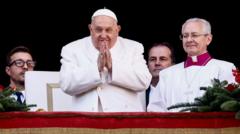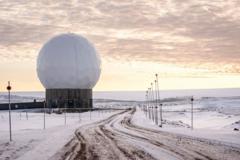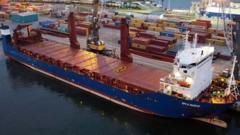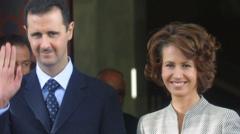A recent analysis reveals Russia has violated UN sanctions by supplying North Korea with a substantial amount of oil in exchange for military support. This trade highlights an increasing alliance between the two nations, fueling concerns over international security and further sanctions evasion.
Russia's Oil Trade with North Korea: Sanctions and Strategic Alliances
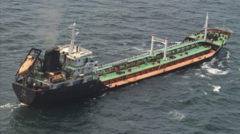
Russia's Oil Trade with North Korea: Sanctions and Strategic Alliances
Russia reportedly supplied over a million barrels of oil to North Korea since March 2024, amidst rising tensions due to the Ukraine conflict.
According to a report from the Open Source Centre, a UK-based non-profit research group, Russia has reportedly supplied North Korea with over a million barrels of oil since March 2024, which raises significant concerns regarding the violation of UN sanctions aimed at curtailing North Korea's nuclear ambitions. The recent analysis, corroborated by satellite imagery, indicates that North Korean oil tankers have made 43 documented trips to Russia's Far East oil terminals in the past eight months.
Experts and UK Foreign Secretary David Lammy suggest that these oil transfers serve as a transactional arrangement where North Korea is providing military support, including weapons and troops, to Russia while receiving vital oil supplies necessary for its military operations. This oil supply is critical for North Korea, which is banned from purchasing oil on the open market and is restricted to an annual cap of 500,000 barrels by the United Nations.
Satellite imagery shared with the BBC reveals that North Korean tankers arrived at Russia’s Vostochny Port with their trackers turned off and returned heavily loaded. Since the inception of the oil sanctions, North Korea has struggled to secure enough oil to meet its needs, forcing Pyongyang to engage in risky and expensive illicit purchases from criminal networks.
Joe Byrne from the Open Source Centre noted that while Russia’s oil trade may seem minor in the context of its larger oil production capacity, acquiring a million barrels is significant for North Korea, providing the country with a crucial lifeline amidst, and as a context to, the ongoing international sanctions. The analysis also highlights the rising collaboration between Russia and North Korea, especially post the disbandment of the UN panel that once monitored sanctions violations.
Experts warn that this growing relationship not only provides both nations with short-term benefits but poses wider implications for global security. The potential exchange of military technology and tactical support between North Korea and Russia exacerbates concerns linking regional powers and could lead to future escalations into conflict, as highlighted by potential developments in Iran.
As Kim Jong Un intensifies his partnership with Vladimir Putin amid the backdrop of the Ukraine conflict, the international community remains vigilant and deeply concerned about the implications of their strategic alliance and ongoing violations of UN regulations. South Korea has expressed its intention to take a stern stance against such violations and remains watchful for any indication that Russian technology may bolster North Korea's military capabilities.







